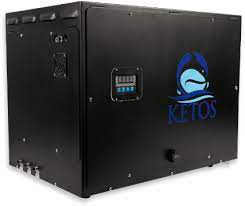Remotely Measure Levels of Sulfates in Water
Monitoring Water for Sulfates With KETOS SHIELD
Accurately Measure Levels of Sulfates in Water
Download KETOS SHIELD’s overview to discover how:
- It’s possible to provide lab-precision accuracy (in ppm) on-site at a reduced cost
- Easy it is to install and integrate with existing water infrastructure
- Static testing, manual sampling, and third-party lab testing can be replaced with on-site lab-quality insights
- Water operators gain real-time insights to make more informed decisions for better regulatory compliance
Learn To Automate Sulfates Testing In Water With Lab-Accurate Results in Real-Time
"*" indicates required fields
Testing for Sulfates in Water
 KETOS SHIELD provides automated water quality monitoring to allow water operators to act on important data in real-time. While companies get excited about avoiding high up-front costs, operators gain access to information that makes it easier to ensure daily operations run smoothly.
KETOS SHIELD provides automated water quality monitoring to allow water operators to act on important data in real-time. While companies get excited about avoiding high up-front costs, operators gain access to information that makes it easier to ensure daily operations run smoothly.
KETOS is an intelligent water management solution that offers lab-accurate monitoring of 30+ water parameters. Operators can test for environmental factors (such as temperature), heavy metals, and elements like sulfates. Monitoring cadence can be controlled by the water operators and samples are pulled and analyzed in real-time for the most accurate, up-to-date water quality information (in ppb).
Why Monitor Water for Sufates with KETOS
Sulfates can occur naturally in groundwater and are pulled into the water as it moves through soil or rock that contains sulfate minerals. Some regions of the country have higher levels of naturally occurring sulfate than others. However, sulfates can also appear in higher concentrations due to municipal or industrial discharge. Human-made points of high sulfate concentrations often include sewage treatment plants and industrial plants such as pulp and textile mills. Agriculture can also contribute to elevated levels of sulfates in water due to agricultural runoff.
High sulfate levels in drinking water may lead to a bitter taste and cause dehydration or diarrhea, with infants being more sensitive to sulfates than adults. Animals also have sensitivities to sulfates.
The EPA suggests that sulfate levels of 250 mg/L in drinking water as higher levels may lead to a bitter taste. This is provided as a guideline and is not a federally enforceable standard. Guidelines may vary from state to state. Sulfate may also corrode water infrastructure, particularly copper piping.
What are the Issues with Sulfates in Water?
Sulfates are naturally occurring compounds found in water sources, typically derived from the weathering of rocks and minerals containing sulfur. While sulfate ions (SO4^2-) themselves are not typically harmful to human health, elevated levels of sulfates in water can lead to various challenges and concerns. Here are key issues associated with sulfates in water:
- Health Risks: Consuming water with high sulfate concentrations can lead to health issues such as gastrointestinal discomfort, diarrhea, and laxative effects. Particularly in infants and individuals with sensitive digestive systems, exposure to elevated sulfate levels in drinking water may cause dehydration and electrolyte imbalances. Chronic ingestion of sulfate-rich water may also exacerbate existing health conditions such as irritable bowel syndrome (IBS) and ulcerative colitis.
- Taste and Odor: Water with elevated sulfate concentrations may exhibit a bitter or unpleasant taste, as well as a distinctive “sulfur” odor. Sulfates can impart a characteristic taste and odor profile to water, which some consumers find objectionable or unpalatable. The presence of sulfates in water can detract from its quality and consumer acceptance, impacting drinking water satisfaction and consumption rates.
- Corrosion: Sulfates can contribute to corrosion in metal pipes, plumbing fixtures, and industrial equipment. In water with high sulfate concentrations, sulfate-reducing bacteria (SRB) may proliferate, leading to microbiologically influenced corrosion (MIC). Corrosion caused by sulfates can weaken metal structures, lead to leaks and pipe failures, and increase maintenance and replacement costs for water distribution systems and infrastructure.
- Scale Formation: Sulfates can react with calcium and magnesium ions present in water to form insoluble precipitates such as calcium sulfate (gypsum) and magnesium sulfate (epsomite). These precipitates can accumulate on surfaces as scale deposits, reducing water flow rates and impairing equipment performance. Scale buildup in pipes, heat exchangers, and industrial machinery can decrease efficiency and increase energy consumption, leading to operational challenges and costs.
- Environmental Impact: Elevated sulfate levels in water bodies can have adverse effects on aquatic ecosystems and biodiversity. Sulfates can contribute to nutrient enrichment and eutrophication, promoting algal growth and bloom formation. Algal blooms fueled by sulfates can lead to oxygen depletion, fish kills, and habitat degradation, impacting water quality and ecosystem health.
- Regulatory Compliance: Governments and regulatory agencies establish guidelines and standards for sulfate levels in drinking water to protect public health and ensure water quality. Compliance with these regulations requires water utilities and treatment facilities to monitor sulfate concentrations regularly, implement appropriate treatment processes, and maintain records to demonstrate compliance with regulatory requirements.
Causes of Sulfates in Water
Sulfates in water originate from various natural and anthropogenic sources. Natural sources include the weathering of rocks and minerals containing sulfates, such as gypsum and pyrite, which release sulfate ions into water bodies. Additionally, volcanic activity and biological processes like the decay of organic matter contribute to sulfate levels in water. Human activities also play a significant role in sulfate contamination, particularly through industrial processes such as mining, smelting, and petroleum refining, which release sulfates into water as wastewater discharges. Agricultural practices, including the use of fertilizers containing sulfates, can also contribute to sulfate levels in water through runoff and leaching. While sulfate is generally not harmful at low concentrations, elevated levels can affect water quality and pose health risks, underscoring the importance of monitoring and managing sulfate levels in water resources.
Acceptable Levels of Sulfates in Water by Industry
Sulfates in water are regulated by various industries to ensure environmental and human health protection. Acceptable levels vary depending on the industry and its specific requirements. For instance, in drinking water, the Environmental Protection Agency (EPA) sets a standard of 250 milligrams per liter (mg/L) for sulfate concentration. However, industries like beverage production may have stricter standards due to taste considerations, often aiming for levels below 150 mg/L. Conversely, in industries such as mining and construction, higher sulfate concentrations may be permissible, but still subject to regulatory limits to prevent ecological damage.
| Industry | Acceptable Sulfate Levels (mg/L) |
|---|---|
| Drinking Water | ≤ 250 |
| Beverage Production | ≤ 150 |
| Mining | Varies, subject to regulatory limits |
| Construction | Varies, subject to regulatory limits |
How to Easily Monitor Water for Sulfates
Instead of measuring sulfates with a meter that only measures a handful of conditions; the KETOS SHIELD is capable of mentoring dozens of water related issues — in real-time.
Gather the insights your organization needs with KETOS. Gather insights on sulfate levels – and 30+ other parameters in real-time. With KETOS SHIELD, water operators can test what they want, when they want, with a centralized dashboard that’s easy to access and updated automatically after every sample.
If you need to detect cadmium in groundwater, assess arsenic levels in tap water or analyzing zinc in vertical agriculture systems, KETOS’ automated water monitoring system is your solution. By incorporating zinc detection capabilities for vertical agriculture applications, it offers an efficient means to ensure water quality, saving time, and addressing regulatory concerns across various sectors.
What Water Quality Parameter Do You Test Most Often?
The KETOS SHIELD remotely monitors dozens of water quality parameters. Which one do your water operators test most often?
KETOS Awards
















About KETOS
KETOS is a fully integrated platform that combines hardware, software, connectivity, automated reporting, predictive analytics, and maintenance to automate water monitoring and testing. KETOS enables water operators to identify and solve mission-critical water efficiency and quality challenges in real-time, or before they happen through predictive algorithms, to ensure that water meets specific quality and safety standards.

